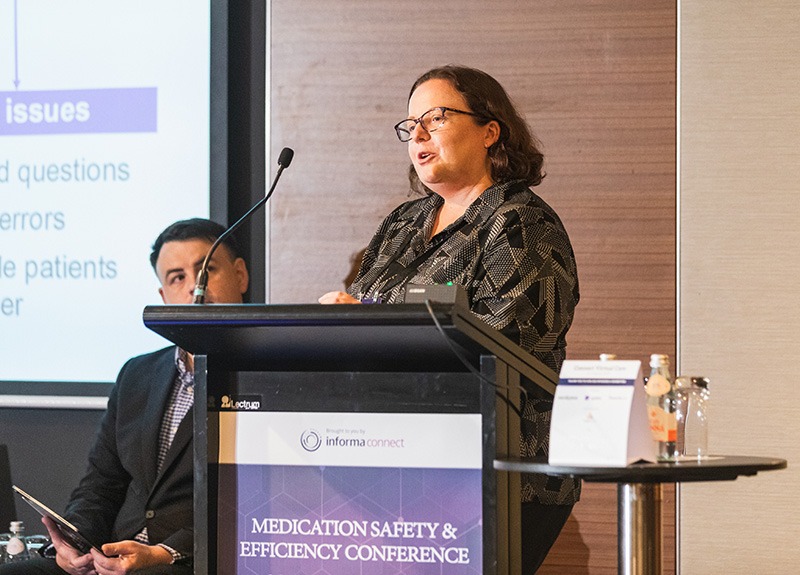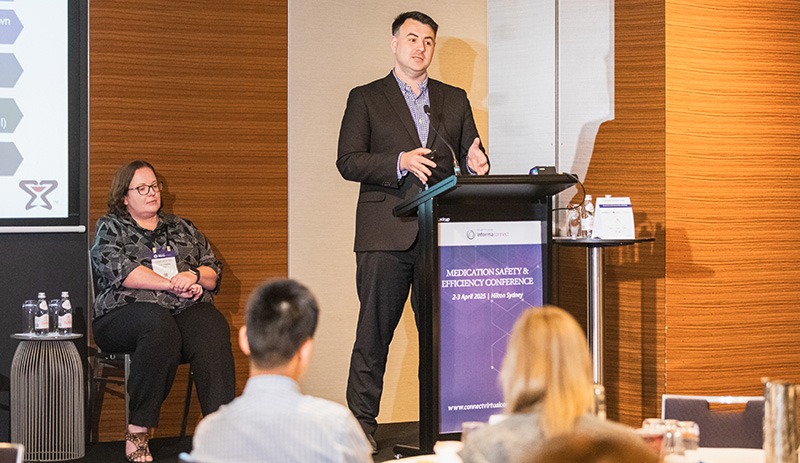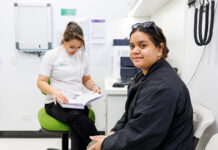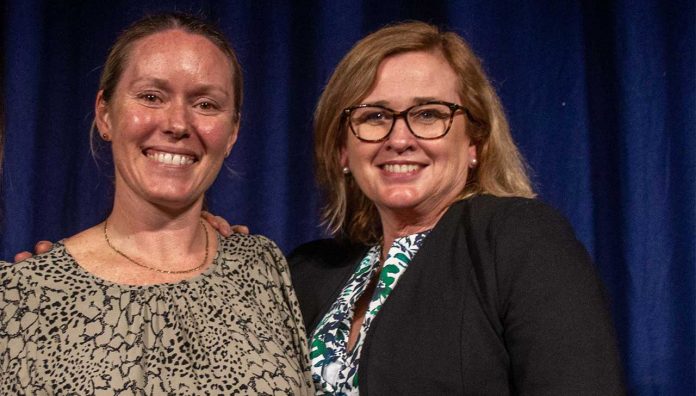Megan Tremlett MPS and Sue Carson MPS are two pharmacists forging new roles outside the norm in pharmacy.
At PSA Queensland’s Annual Therapeutic Update this month, participants heard how they are following their dreams by pursuing work that was not available to them when they graduated more than 25 years ago. They are making a difference to peoples’ lives, and their passion is infectious.
Based on the Sunshine Coast, Ms Tremlett is co–ordinating the Aboriginal integrating pharmacists within Aboriginal Community Controlled Health Service (ACCHS) to improve chronic disease management project (IPAC).
Ms Carson is working as a pharmacist in the Community Transition Care Program at the Brighton Health Campus of the Metro North Hospital and Health Service in Brisbane.
Ms Tremlett loves contributing to the evolution of an alternative career path for pharmacists, one that is much needed in the Aboriginal and Torres Strait Islander health sector. She also finds it rewarding to contribute to research needed to support the value of this emerging role for pharmacists. She works collaboratively with project partners, which extends her knowledge of research methodology.
‘It is immensely rewarding to coordinate 20 inspirational pharmacists doing the pioneering “on the ground” work to provide, not only a relatively new clinical service but also to collect extensive project-related data,’ she told Australian Pharmacist this week. ‘Hearing numerous testimonials from patients, doctors and others positively impacted by their work has been very satisfying.’
In Ms Tremlett’s 28-year career, she has deliberately sought job variety and new challenges to progress her professional capabilities, including hospital pharmacy (both in Australia and the United Kingdom), community pharmacy, and as an accredited pharmacist conducting RMMRs and HMRs.
Due to her previous work in the Northern Territory, and her ongoing interest in new clinical roles for pharmacists, she was approached by PSA for the role of IPAC Project Coordinator.
‘I have been extremely fortunate to share this role with a wonderful colleague, Hannah Loller, who is equally passionate about the health of Aboriginal and Torres Strait Islander Australians.’
Ms Tremlett wants to encourage pharmacists to consider participating in research to use their extensive skills and push existing boundaries in care delivery.
‘In particular,’ she added, ‘I am optimistic that the role of pharmacists working with Aboriginal Health Services will continue to gain momentum thanks to a combination of research projects such as IPAC and IMeRSe, and the shared experience of a number of pharmacists who have already been working in this sector for many years.’
‘While there are challenges associated with becoming integrated into a new practice setting, the rewards of being a valued member of a multidisciplinary team and making a genuine difference to patient care are limitless. For pharmacists who like to travel, I would urge you to seek a new adventure in regional or remote Australia,’ Ms Tremlett said.
Sue Carson jumped at the opportunity to work in a community transition care program with registered nurses, enrolled nurses, speech pathologists, physiotherapists, dieticians, occupational therapists and social workers using her skills as an accredited pharmacist.
‘It is very rewarding to see a client of community transitional care gain independence in their own home after an admission to hospital. The other health professionals value my knowledge as a pharmacist, and we learn from each other every day.’
She has ‘never felt so valued in my career in pharmacy’ because in the transitional care setting, pharmacists are greatly needed as a significant number of hospital readmissions occur due to medication errors at transitions of care.
‘There are an increasing number of opportunities for pharmacists to work in multi-disciplinary teams as we [not only] have pharmaceutical knowledge but also communication skills. So pharmacists should seek out the opportunities that our professional training can lend itself to,’ Ms Tremlett said.
‘As PSA is impressing upon government and medical professionals [and as highlighted in the Royal Commission into Aged Care Quality and Safety] pharmacists need to be involved wherever and whenever medicines are used.’
PSA’s Pharmacists in 2023 report encourages pharmacists to be embedded wherever medicines are used, and unlock their potential to improve healthcare access and outcomes for Australians and reduce variability in care.1
Reference
- Pharmaceutical Society of Australia. Pharmacists in 2023: For patients, for our profession, for Australia’s health system. Canberra: PSA; 2019.



 Jess Hadley, community pharmacist and Professional Officer at PDL[/caption]
Jess Hadley, community pharmacist and Professional Officer at PDL[/caption]
 Peter Guthrey, Senior Pharmacist – Strategic Policy at PSA[/caption]
Peter Guthrey, Senior Pharmacist – Strategic Policy at PSA[/caption]


 Professor Margie Danchin[/caption]
Professor Margie Danchin[/caption]

 Dr Peter Tenni[/caption]
Dr Peter Tenni[/caption]
 How should we deprescribe gabapentinoids, according to the Maudsley Deprescribing Guidelines[/caption]
How should we deprescribe gabapentinoids, according to the Maudsley Deprescribing Guidelines[/caption]









